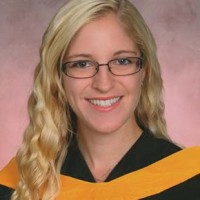- About Ramapo
- Academics
- Admissions & Aid
- Student Life
- Athletics
- Alumni
- Arts & Community
- Quick Links
- Apply
- Visit
- Give
Engineering Physics
About Engineering Physics
Interested in how the universe works? Want to learn skills to solve real-world problems? If you have a passion for innovation and aim to work with cutting-edge technologies, consider majoring in Engineering Physics.
Physics is considered the most basic science. It covers both life and physical sciences. Engineering uses science to design, build, and test machines, processes, or projects for practical use. The skill in combining science and engineering is important for helping society grow.
The Engineering Physics program at Ramapo is designed for students who both enjoy and excel at physics, and are interested in how it relates to engineering. You will discover how to take on big challenges, such as developing clean energy solutions, enhancing medical technologies, or improving communication systems.
Graduates in Engineering Physics are needed in many fields. These include aerospace, robotics, electronics, optoelectronics, telecommunications, materials science, energy systems, and data science. The problem-solving skills you develop will make you a good candidate for jobs in consulting, finance, and software development.
Class you can take:
Career Opportunities
Many industries need graduates with a degree in Engineering Physics. They can work in aerospace, building planes and spacecraft. In robotics, they design and improve machines that operate automatically. In electronics, they create devices like phones and computers. They also study optoelectronics, which combines light and electronics, and telecommunications, where they develop communication tools.
They are important in materials science, studying how different materials behave. In energy systems, they help find ways to create sustainable energy. Their strong problem-solving skills also make them suitable for jobs in data science, where they analyze complex data.
In addition to these areas, Engineering Physics graduates can work in consulting, finance, and software development. Their ability to solve difficult problems and use science and math in practical ways makes them valuable in these fields.
STEM Scholars
As you work toward your degree in Engineering Physics, you may discover a passion to teach. In 2024, Ramapo received a $1.3 million grant from the National Science Foundation. This grant is part of the Robert Noyce Teacher Scholarship program. It aims to address the lack of STEM teachers.
The project aims to serve the national need of preparing well-qualified and experienced STEM secondary education teachers who are committed to teaching in high-needs school districts and prepared for the future of education. The grant provides funding over the next five years to create pathways and communities of practice to prepare STEM scholars for the future of education.
Some Jobs for Graduates with an Engineering Physics Degree
Aerospace Engineers
Perform engineering duties in designing, constructing, and testing aircraft, missiles, and spacecraft. May conduct basic and applied research to evaluate adaptability of materials and equipment to aircraft design and manufacture. May recommend improvements in testing equipment and techniques.
Agricultural Engineers
Agricultural engineers solve problems concerning power supplies, machine efficiency, the use of structures and facilities, pollution and environmental issues, and the storage and processing of agricultural products.
Bioengineers and Biomedical Engineers
Bioengineers and biomedical engineers combine engineering principles with sciences to design and create equipment, devices, computer systems, and software.
Chemical Engineers
Chemical engineers apply the principles of chemistry, physics, and engineering to design equipment and processes for manufacturing products such as gasoline, detergents, and paper.
Civil Engineers
Perform engineering duties in planning, designing, and overseeing construction and maintenance of building structures and facilities, such as roads, railroads, airports, bridges, harbors, channels, dams, irrigation projects, pipelines, power plants, and water and sewage systems. Includes architectural, structural, traffic, and geotechnical engineers. Excludes “Hydrologists.”
Computer Hardware Engineers
Research, design, develop, or test computer or computer-related equipment for commercial, industrial, military, or scientific use. May supervise the manufacturing and installation of computer or computer-related equipment and components. Excludes “Software Developers” and “Web Developers.”
Electrical Engineers
Research, design, develop, test, or supervise the manufacturing and installation of electrical equipment, components, or systems for commercial, industrial, military, or scientific use. Excludes “Computer Hardware Engineers.”
Electronics Engineers, Except Computer
Research, design, develop, or test electronic components and systems for commercial, industrial, military, or scientific use employing knowledge of electronic theory and materials properties. Design electronic circuits and components for use in fields such as telecommunications, aerospace guidance and propulsion control, acoustics, or instruments and controls. Excludes “Computer Hardware Engineers.”
Environmental Engineers
Research, design, plan, or perform engineering duties in the prevention, control, and remediation of environmental hazards using various engineering disciplines. Work may include waste treatment, site remediation, or pollution control technology.
Operating Engineers and Other Construction Equipment Operators
Operate one or several types of power construction equipment, such as motor graders, bulldozers, scrapers, compressors, pumps, derricks, shovels, tractors, or front-end loaders to excavate, move, and grade earth, erect structures, or pour concrete or other hard surface pavement. May repair and maintain equipment in addition to other duties. Excludes “Extraction Workers” and “Crane and Tower Operators.”
Physicists
Conduct research into physical phenomena, develop theories on the basis of observation and experiments, and devise methods to apply physical laws and theories. Excludes “Biochemists and Biophysicists.”
Sources of Information:
*”Occupational Employment and Wage Statistics.” United States Department of Labor: Bureau of Labor Statistics, https://www.bls.gov/oes/current/oes_stru.htm.
Sample Job Titles and National Salary Ranges
| Job Title | Salary Range |
|---|---|
| Aerospace Engineers | $105,470 - $174,760 |
| Agricultural Engineers | $52,200 - $110,260 |
| Bioengineers and Biomedical Engineers | $77,920 - $167,900 |
| Chemical Engineers | $74,770 - $173,600 |
| Civil Engineers | $66,030 - $164,340 |
| Computer Hardware Engineers | $81,280 - $174,830 |
| Electrical Engineers | $75,580 - $168,760 |
| Electronics Engineers, Except Computer | $91,660 - $198,340 |
| Environmental Engineers | $65,190 - $178,130 |
| Operating Engineers and Other Construction Equipment Operators | $52,560 - $128,660 |
| Physicists | $95,540 - Varies |
* Sources of Information: United States Department of Labor: Bureau of Labor Statistics (2024). For more information about careers and assistance in making your career plans, please contact Career Services (cahill@ramapo.edu) or visit www.ramapo.edu/careercenter/.
Success Stories
Hands-On Learning
While majoring in Engineering Physics, you will learn how to effectively apply concepts from theoretical physics to solve practical engineering problems.
Practical Skills
Engineering Physics majors can learn many important skills needed for working in a lab. These include:
- the ability to gather and analyze data effectively
- identifying and understanding errors in their work
- creating graphs to represent your findings
- applying statistical methods to interpret results
This comprehensive skill set not only enhances your hands-on experience but also prepares you for future work in scientific fields.
Engineering Physics Labs
Our facilities include laboratories equipped for electronics, advanced physics, computers, instrumentation, optics, and a machine shop.
The Engineering Physics major offers in-depth study into advanced topics such as electronics; mechanics, thermodynamics, electromagnetic theory and optics; relativity, atomic, and quantum theory; nuclear, sub-nuclear, and solid state physics; and computer science. You can learn about nanotechnology, quantum computing, renewable energy, semiconductor technology, and advanced materials.
Faculty
Ramapo faculty actively supports students pursuing undergraduate research in fields such as computer science, electronics, renewable energy, and optics. Professor Daniela Buna has had several of her students, supported through the McNair grant, present their work at national conferences. Dr. Buna developed the Materials Science laboratory, a research and teaching lab where students work on fabrication and characterization of thermoelectrics, superconductors and other materials.
The National Science Foundation (NSF) recently awarded a $192K grant to Dr. Catalin Martin, professor of engineering physics, to study magneto-optical properties of a new class of materials called Weyl semimetals. The grant included financial support for students to work on research in the summer and their research was presented at the American Physical Society.
In the Optics Lab, students conduct research on terahertz imaging and photonics under the mentorship of Professor Caroline Brisson. Students presented at COPLAC conference.
Internships
Ramapo Engineering Physics majors have had internships with local organizations such as UPS, Glatt Air Techniques, A&J Consulting Engineering Services, PC,and European-American Business Organization, Inc.
Copyright ©2025 Ramapo College Of New Jersey. Statements And Policies. Contact Webmaster.





Follow Ramapo College